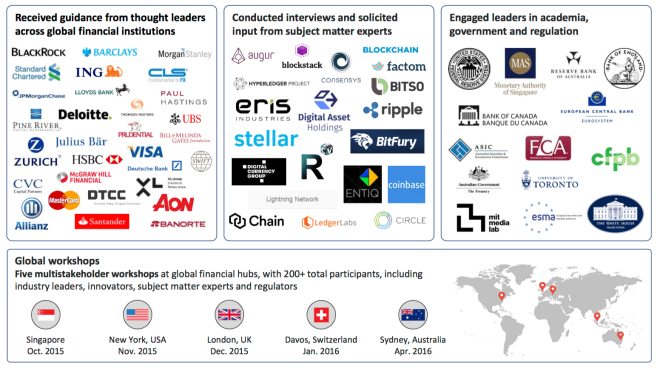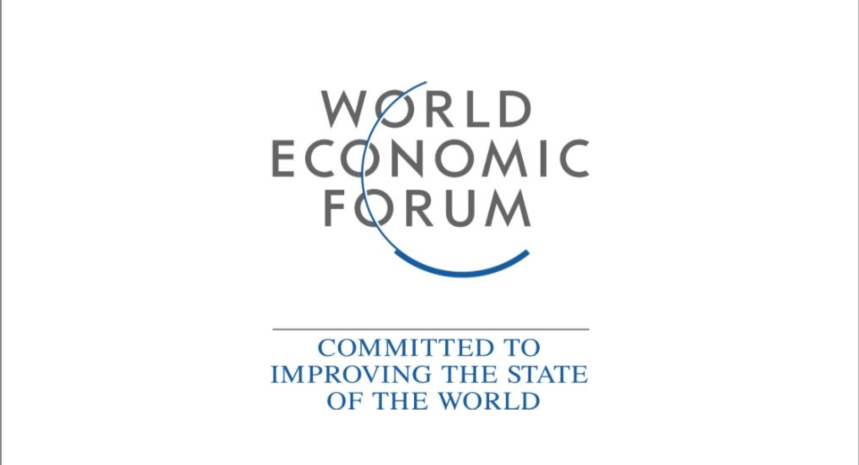A comprehensive report by the World Economic Forum released yesterday reiterates the importance of blockchain technology in global finance. The 129-page report presents the findings of an in-depth analysis of nine different use cases of the distributed ledger technology.
The report titled “The Future of Financial Infrastructure – An ambitious look at how blockchain can reshape financial services” presents the findings from an earlier Deloitte/World Economic Forum report – “Disruptive Innovation in Financial Services”. A product of over one year of research involving industry leaders and subject matter experts has resulted in 6 key findings on the future of blockchain technology in finance.

Key Findings
- The potential to offer simple and efficient financial services infrastructure and processes.
- It may not be the ultimate solution, but it is one of the many technologies that will lay the foundation for next generation financial services infrastructure
- The technology can be used for a range of applications where its implementation varies from case to case.
- Digital identity offered by blockchain technology can expand existing financial applications across new verticals. Use of distributed ledger technology to create digital fiat currencies can further amplify its benefits.
- A deep collaboration between incumbents, innovators and regulators is required to create impactful applications.
- The new blockchain based financial services infrastructure has the potential to disrupt the existing processes, questioning the validity of existing business models.
The report explores the use of digital current technology in global payments, insurance claims processing, trade finance and lending, capital raising, automated compliance and proxy voting in investment management and market provisioning sectors.
The importance of blockchain technology as reported by World Economic Forum will add more credibility to the digital currency technology industry. The migration of financial institutions from the conventional system to blockchain technology-based operational methods will not interrupt their normal operations. As most of the changes will be made behind the scenes, institutions will be able to cut down time and cost of operations without compromising on their customer service.
With over $1.4 billion invested in blockchain technology by various institutions in the past three years, the development and implementation of applications built on the technology is expected to continue into the future.
Access the full report here
Ref: World Economic Forum | Mashable |NY Times | Image: World Economic Forum


















